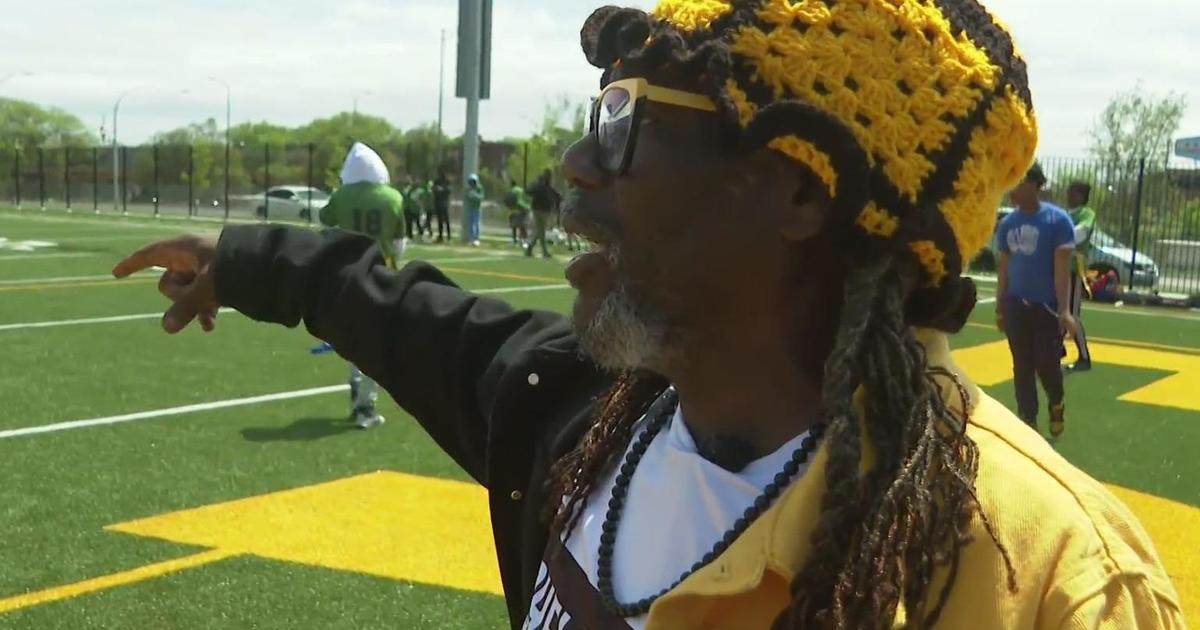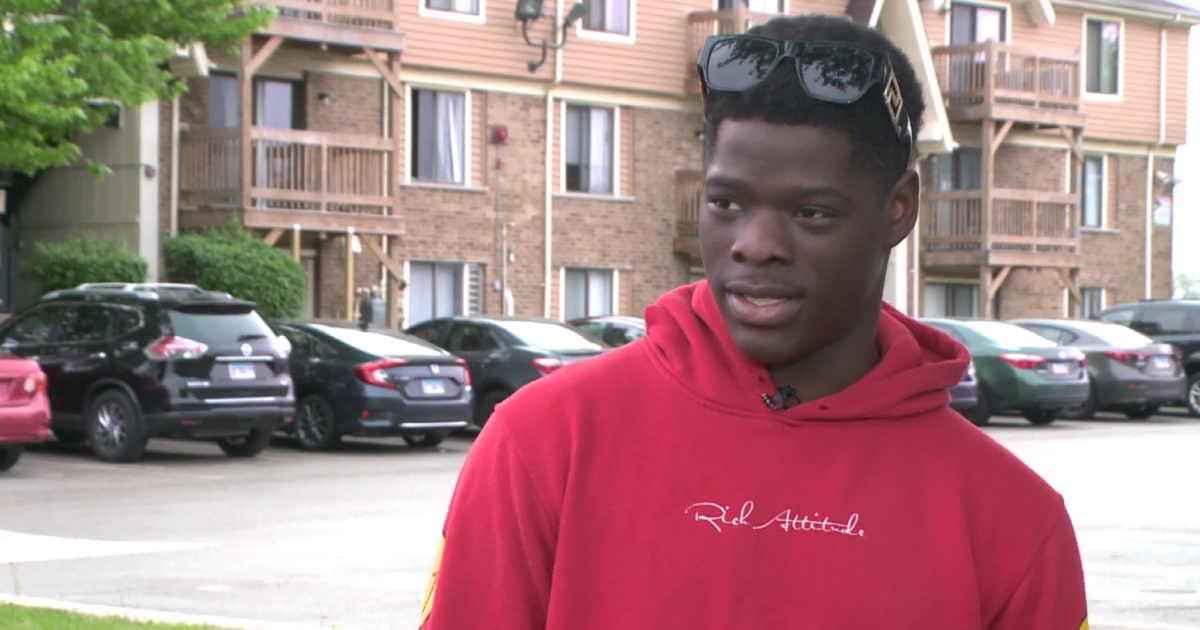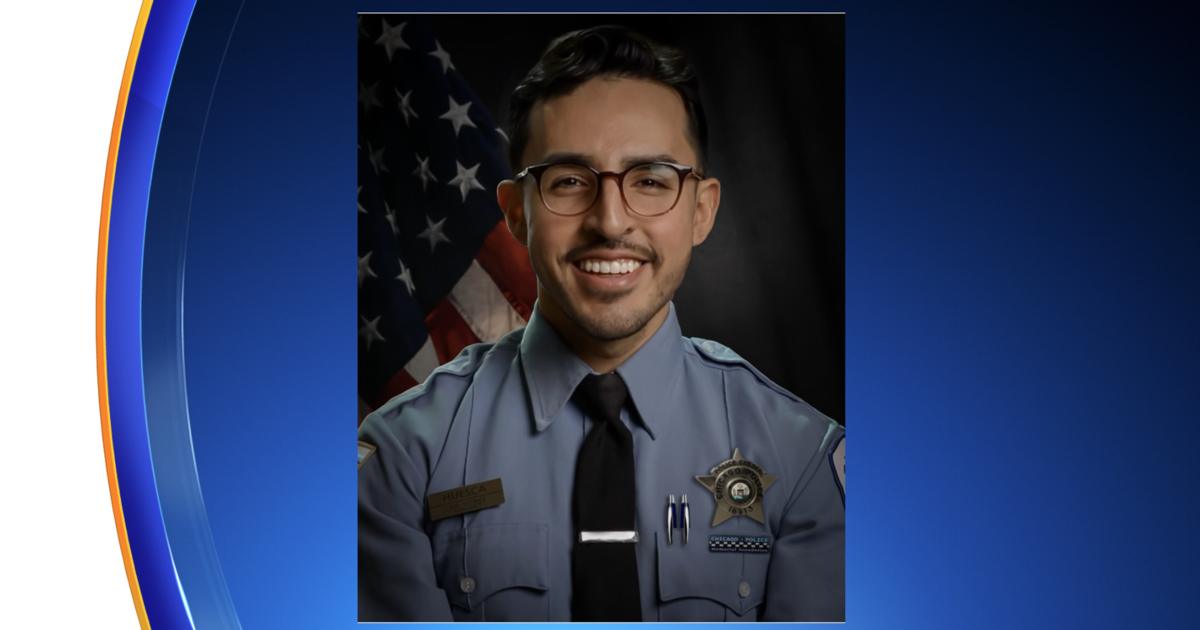Chicago Has 'Formally Passed The Omicron Peak' As New COVID-19 Infections Decline, Hospitalizations Level Off, Top Doc Says; Cautious Optimism With Similar Trend Reported Statewide
CHICAGO (CBS) -- The Omicron surge of the COVID-19 pandemic has peaked in Chicago, after surging to record levels in early January, the city's top doctor announced Wednesday afternoon.
"I am very, very pleased to say that we have formally passed the Omicron peak here in the city of Chicago," Chicago Department of Public Health Dr. Allison Arwady said Wednesday at City Hall. "However, we are a long way from being out of the woods, and it's really important over these next few weeks and months that we continue to work hard on getting folks vaccinated, getting folks tested, continuing to wear masks, because there's a long way to come down."
Arwady said COVID-19 cases are dropping in Chicago, with the city now averaging 2,903 new cases per day, a 46% drop in the past week. New cases peaked at 8,553 infections on Jan. 4, the most ever recorded in Chicago during the pandemic.
Hospitalizations also have started to level off, with the city averaging 196 hospitalizations per day, down 2% over the past week.
"Our hospitals are still stretched, make no doubt about that," Arwady said.
The city's test positivity rate stands at 12.6%, down from 17.2% one week ago. During the Omicron surge, that rate peaked at 19.6% on Jan. 1, Arwady said.
"So, we're confident seeing that big decrease both in cases, and then in positivity, that this is not just an artifact of testing. This is, in fact, a true peak," she said.
Arwady said, while the risk from COVID-19 remains high in Chicago, she's encouraged that numbers are improving.
"The threat is in no way over, but the news is good in terms of the direction that it's turning," she said.
Virtually all new COVID-19 cases in Chicago are from the virulent Omicron variant, which now accounts for 99.3% of new infections. Arwady said Omicron quickly became the dominant strain of the pandemic after it was first detected in Chicago in early December, accounting for 95% of all new infections within five weeks.
Arwady said, while Omicron has fueled an unprecedented number of infections across the country, because most cases are mild, hospitalizations and deaths did not spike nearly as much, with hospitalization levels similar to earlier surges of the pandemic, and death rates lower than previous waves.
Deaths likely will continue to rise in Chicago over the next couple weeks, as deaths typically lag behind infections and hospitalizations.
Arwady also again urged people who are not vaccinated against COVID-19 to get their shots, noting unvaccinated people are five times more likely to be hospitalized and eight times more likely to die if they are infected than people who have been vaccinated.
As CBS 2's Chris Tye reported, there is similar story inside Chicago Public Schools.
"Already, we are starting to see that things peaked last week just as the city has," said Chicago Public Schools Chief Executive Officer Pedro Martinez.
Meanwhile Wednesday, Illinois Gov. JB Pritzker and Public Health Director Dr. Ngozi Ezike both reported cautious optimism with a similar trend being reported statewide.
Pritzker said Wednesday marked the seventh day since a peak of 7,380 hospitalizations was seen on Thursday, Jan. 13. The single-day number of COVID-19 patients has fallen by 870 – a decline of 11.8 percent to 6,507 hospitalized patients statewide as of Wednesday.
"You don't know when a surge has reached its peak until you're on the other side of it," Pritzker said.
Over the same period, the governor said, ICU and ventilator use has also started decline – which Pritzker said amount to "a welcome change after precipitous increases over the prior seven weeks."
Pritzker said while he is cautiously optimistic, there are still numerous people battling for their lives with COVID-19 in hospitals across the states, and ICU capacity is only at around 10 percent.
"We have lost so many people in recent weeks," Pritzker said. "Since the beginning of January alone, over 1,500 of our state's residents died from the virus."
Pritzker said Illinoisans can help by getting vaccinated – and he disputed the claim that anyone who has not been vaccinated against COVID-19 at this point is a lost cause. The governor said 14,000 people got their first vaccine does every day in Illinois for the first two weeks of 2022.
Ezike also used the words "cautiously optimistic." But she said while overall hospitalizations are decreasing, they remain very high – and higher than in any other COVID surge.
"The good news is the trend is downward," Ezike said, "The sheer volume, however, is still a problem."
CBS 2's Chris Tye asked Dr. Ezike what kind of metrics the state is looking at to change statewide mitigation policies against COVID-19.
Ezike replied: "We have ongoing discussions. We've been waiting for an opportunity to think about how we pivot to the next stages."
The key metric will be hospitalizations, and the determining factor is whether things keep moving in a downward direction, Ezike said. Also of importance is what needs to be done to live with COVID-19 long-term.
But for now, while the trends are improving, policies around masks and proof of vaccination aren't changing. But what is also clear is that changes could come quick.
"I think pretty quickly - I think within 30 days – it's going to get down to a dull roar," said Dr. Robert Murphy of Northwestern University.
Murphy said we are at 233 cases per 100,000 people. We need to get to 15 per 100,000 for rules to loosen.
"When this gets down to 15 case per 100,000, I mean, the roaring 20s are going to be back," Murphy said.
"Back to normal" is something we were teased with last summer…and something the city learned from. And moving forward with real life, with things like Lollapalooza and loosened restrictions, is something officials plan to activate on as soon as that data shows its safe.
"I think it is important, actually, that when epidemiologically, we are in reasonable control here, that we can drop a lot of this restrictions," Arwady said.
Relaxing rules too soon is what triggers slides backwards - a delicate dance. Officials such as Arwady and Ezike advise looking to the U.K. as a precursor to where we are headed – and they have seen a 30 percent drop since last week.
The U.K. is pulling back mask requirements and proof of vaccination as quickly as next week.
And while Chicago and Illinois have positive stories to tell, the same does not appear to be true for neighboring states. Indiana, Wisconsin, Michigan, and Ohio have not yet peaked.
The big takeaway here is the spikes among family, friends, and coworkers we saw around Christmas was Omicron at its worst. And while there are a lot of people still very sick, and many deaths still to record, we're over the hump.



